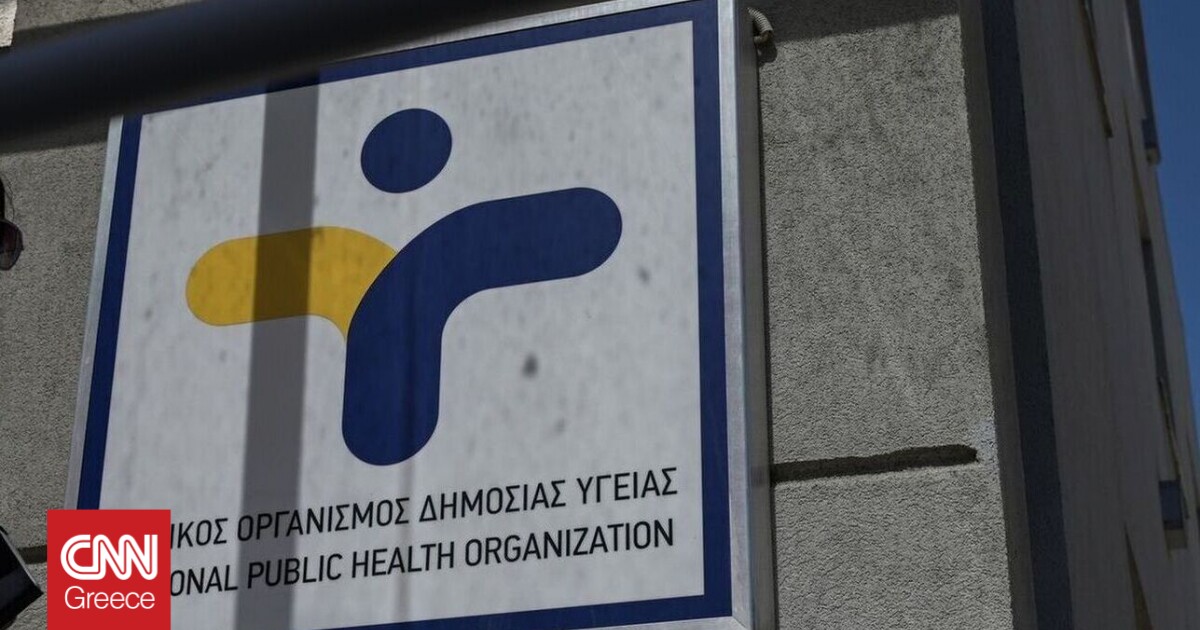O. Omran in BD: Why Greece has high wholesale electricity prices
The international lawyer and writer with extensive experience in energy matters talks to BD about the challenges posed by the energy crisis. How does he evaluate Europe’s response to the crisis and Greece’s measures.
Delay and inaction in the reception they characterized her reaction Join in dealing with the energy crisis, notes Orestes Omran in an interview at Business Daily, however, commenting positively on the decision to impose a ceiling on the wholesale market last December. The discussions on the creation of a common natural gas procurement platform may signal, he points out, the realization of the necessity to change course and strengthen the determination of the Union.
Orestes Omran, international lawyer and PhD in Comparative Constitutional Law who lives and works as a partner in an international law firm in Brussels, has participated as an external legal advisor in some of the most important transactions in the energy sector in Greece in recent years, including privatizations, acquisitions and mergers, complex financings, renewable energy projects and interconnection electricity.
At the same time, it advises Greece and other member states of the Union on issues state aid Before the Commission, National Authorities and in related legal proceedings before the Courts of the European Union.
Evaluating his deep knowledge of the market and the issues referred to in the energy sector at the Greek and Greek level, he interprets in his new book, “25+1 questions about the energy crisis”, in a comprehensible manner complex technical terms, decodes the energy crisis by identifying the key points for understanding the causes of today’s conditions and underlines the importance of the “green” transition.
Asked about the high wholesale market prices of electricity that bring Greece among the most expensive countries in the EU notes as reasons the over-dependence of the country on imports, the great international competition to secure loads from alternative providers, the delay in the liberalization of the market, retail and wholesale, its under-functioning. energy exchange and the incomplete interconnection with the other European energy markets.
He also emphasizes that apart from temporary measures, such as tariff subsidies of electricity are necessary and lasting policies that will protect the vulnerable, provide active flexibility for SMEs, establish a permanent price sustainability mechanism for the country’s industry, ensure connectivity to the system of large RES projects and strengthens the country’s international role in the transfer of energy for the benefit of its citizens.
Referring to the good performance of the country in the field of energy saving, he notes that in order to make the act of transition it is necessary relevant public and private sector cooperation, while speaking about the next day of energy in the country, he emphasizes that the speed of penetration of RES into the energy supply mix will bring significant benefits, it is enough to clarify the regulatory landscape and facilitate the connection to the system of RES projects. At the same time, he notes that the hydrocarbon investigations they may intensify, however exercising realism in expectations.
- What are the biggest challenges facing the European Union as well as Greece in the transition to a “green” active model and a climate neutral economy?
The over-dependence on Russian fossil fuels, the securing of occupation through alternative providers, the acceleration of the energy transition but also its increased costs, the reduction of the high energy prices paid by European actors are among the important challenges facing Europe today. in the energy sector and these were highlighted by the Ukrainian. The transformation of the challenges is the biggest bet of the European Union today. The need to exit environmental protection by ensuring energy sufficiency creates investment majors and accelerates projects that would normally be completed in the next decade. Renewable Sources are expected to cover most of the European active body with a large composition, which is also an investment opportunity for our country, which is expected to become a hub for transferring energy from Asia and Africa, increasing its role in the international market at the same time LNG. and gradually turning into an export country as well.
- How to evaluate the moves the EU has made to deal with high energy prices but also to safeguard its energy industry? Has Europe managed to stand as a Union in the energy crisis?
The European Union, despite realizing relatively quickly the dangers of the Ukrainian crisis in the energy sector, was inactive and significantly delayed in taking those decisions intended to deal with the energy crisis that followed. This is due to the different realities and national political priorities of the Member States and the ineffectiveness of the reception mechanisms, as provided by the Treaties. The Union acted ineffectively and piecemeal until the end of last year, but the decision to impose a cap on the wholesale market last December and the current discussions on the creation of common gas supplies are in the right direction and may signal the realization of the necessity . to change course and strengthen the determination of the Union in this and other issues of a supranational nature.
- In the book and a much-discussed question of late, whether Russia continues to get “rich” from gas and oil exports despite another embargo. Ultimately, in the “energy war” between Brussels and Moscow, who comes out victorious?
Indeed, it has been observed that Russia’s economy has benefited during the energy crisis and capital inflows from exports are not negligible. It is noteworthy that although a greater recession was initially expected in the Russian economy, there are indications that in the short term it strengthened and its national currency recovered. If these indications are true, then it demonstrates the relative inability of European sanctions to weaken Russia economically, at least as long as imports continue. In the energy war, until today, both the E.U. as well as Russia remain lost. On the one hand, the Union is facing a serious issue, at a time when sharp price increases are causing political problems for many governments, and Russia is losing its most reliable trading partner.
- Greece has recently been faced with significantly high electricity prices that keep it at a distance from the average. Where do you attribute this image and how effective is the policy followed to date?
The increased average prices observed at times from last March onwards in Greece in relation to other EU Member States can be attributed to a series. For example, the over-reliance on imports, the great international competition to secure loads from alternative providers, the delay in the liberalization of the energy market, retail and wholesale, the under-functioning of the energy exchange, the high taxes and fees added to the consumer’s tariff , the incomplete interconnection with the other European energy markets are some of them. In terms of policy adopted to date, the Energy Transition Fund to hold down prices and tax producer surpluses is in the right direction. The inherently parodic nature of these measures highlights the necessity of permanent policies that will protect vulnerable targets, provide energy flexibility for small and medium-sized enterprises, affect only price sustainability mechanisms for the country’s industry, ensure the possibility of connecting to the system. of large RES projects and will strengthen the country’s international role in energy transfer and for the benefit of its citizens.
- Where does the country stand in terms of energy conservation efforts and what is the picture of the market for energy conservation projects? Are there financial tools that can support relevant actions?
Our country is doing relatively well in saving energy, having achieved significant levels of consumption reduction, above and above the average several times. Further savings can be achieved by accelerating RES penetration, analyzing buildings, implementing practical energy efficiencies and creating financial and other incentives to further reduce consumption. Traditional lending, government subsidies and significant European funding, such as that of the RRF, are the best tools for financing savings projects. After all, the energy transition can only be completed with the cooperation of the public and private sectors.
- Ambitious new national targets for the transition act that envisage significant increases in RES projects, opening up the offshore wind market, targeting project promotion, and an emphasis on hydrocarbon and natural gas exploration are high on the government’s agenda. How do you think the country’s energy future is shaping up?
The rapid penetration of RES in the mix of energy supply and the undoubtedly important elements it will bring to the energy map of Greece, does not clarify the regulatory landscape and does not claim the connection to the system of RES projects. In offshore wind we need to move from the regulation period to this implementation while storage needs to be augmented by battery and possibly hydrogen projects within the decade. Hydrocarbon explorations can be included, however, we need realism in expectations and partnerships with international companies to move on to the exploitation of any deposits. The more these key energy market reforms progress and international projects are promoted to be implemented in the region, the more energy secure the country’s future will be.
- Can Greece become an energy hub for the wider region? What are the steps to get there and what will be the impact geostrategically and economically for the country?
The transformation of Greece into an energy hub has begun to work. Greece utilizes its energy potential and its geostrategic position and is making great progress as a transit center for the Southeast Mediterranean, the Western Balkans and the European Union. It is already leading in the development of projects of strategic importance such as TAP, the project of the Greece-Bulgaria Natural Gas Interconnector (IGB), etc. The development of projects of such strategic importance can only affect the energy transformation of the country. and in ensuring good neighborhood conditions with the countries of the wider region. The investment countries that will appear in these contexts will be important and must not be lost if we want Greece to continue to have a leading role in international reports.


/cloudfront-eu-central-1.images.arcpublishing.com/madsack/NUWZCWCJRJBIJHU5AUO5EXOHDY.jpg)

/cloudfront-eu-central-1.images.arcpublishing.com/madsack/NHW556UKZ5AVBM47OAWSYLJCPQ.jpg)